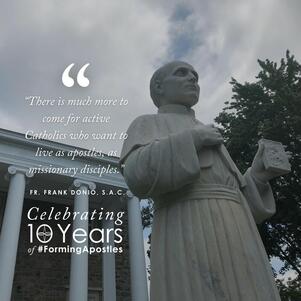 Reviving faith, rekindling charity, and forming apostles are what we do at Catholic Apostolate Center. We do it because that is what St. Vincent Pallotti did in Rome in the first half of the nineteenth century and what his spiritual children have done for 187 years. As we conclude our tenth anniversary celebration, we offer gratitude to God, the Infinite Love, for all the blessings that we have received in this ministry. Synodality is now a common word in the Church. From the beginning, the Center team journeyed together with the Holy Spirit in a co-responsible and collaborative way. This way of being is not unique to Catholic Apostolate Center but is at the core of the witness of St. Vincent Pallotti and his spiritual legacy, the Union of Catholic Apostolate. Our second decade has begun well with many new resources and expanded collaboration with various national and international Catholic organizations. There is much more to come for active Catholics who want to live as apostles, as missionary disciples. We look forward to where the Holy Spirit moves this ministry. We discern this in the Cenacle with the Blessed Virgin Mary, Queen of Apostles, and then go forth as apostles in service to Christ and the Church. Thank you for your support over this past decade and know that our prayers are with you. May the Charity of Christ urge us on! In Christ, Apostle of the Eternal Father, Fr. Frank
0 Comments
Ten years of the Catholic Apostolate Center. It has been a joy to be a part of this ambitious and collaborative team for almost five years. I never pictured myself running social media for a Catholic organization. In fact, social media was just a personal hobby until my senior year of college at The Catholic University of America. I started my journey in Catholic social media at the Basilica of the National Shrine of the Immaculate Conception in Washington, D.C. That opportunity honestly came to be through a few jokes made by close friends. After a few months in my role at the Basilica, Fr. Frank Donio, S.A.C. reached out to me about the Catholic Apostolate Center. I remember being floored. I joined the Catholic Apostolate Center team in January 2017 as the Social Media Associate.
I worked for the Center during my last year of undergraduate, my two years of graduate school, and for the first two and half years of my first full-time job at Catholic University in student affairs. I studied higher education in graduate school and thought that I would work at a university forever. During the early days of the pandemic, the Center pivoted its content to provide Covid-19 resources for our community. While it was a weird time for the world, it was a time of growth for the Center behind the scenes and in our content offerings. The Center team was churning out so much content that I found myself doing quite a bit of work for the Center during the initial lockdown. Some days I was doing more work for the Center than my full-time job (due to the early nature of remote work during the beginning of the pandemic). As the pandemic and work from home progressed, I realized that I was enjoying my work for the Center more than the work for my full-time job. As time passed, I realized that I wanted to make a career change. I came to the realization that I wanted to shift to communications for a Catholic organization (ideally). I never expected that enjoying photography, graphic design, and social media would lead me to where I am today. I am greatly appreciative to the Center for giving me the opportunity to develop the skills that have become my career. It has been such an incredible experience to learn and grow with such a supportive team at the Catholic Apostolate Center. I have learned so much from the wonderful people that I have been able to work with. In addition to growing my skills in social media and graphic design, the Center has allowed me to grow in my faith. I have learned so much from all of the content and resources that we produce. I have been able to strengthen my faith and theological background through the books that the Center has published and our webinars and podcasts. One of the best things about the Center is that we produce resources for so many learning styles. We have books for readers and visual learners, podcasts for audible learners, virtual retreats for those seeking spiritual resources, and so much more. I encourage you to spend some time on our website, click through our resources, and see what you can find. One great part of my job is that there is always a wealth of content for me to promote. Some weeks I really have to pick and choose what goes on our social feeds because there is so much to be shared. I am so grateful that the Center is a part of my story, and I cannot wait to watch the Center continue to grow and evolve. I know that the Catholic Apostolate Center will be celebrating milestones for years to come. I had joined the Catholic Apostolate Center in October 2014, just prior to its third anniversary of founding. I was asked to help move forward several projects and programs for the Center as a full-time staff member. I joined with little experience in Catholic non-profits. However, our Founding Director, Fr. Frank Donio, S.A.C., saw some potential in my work and was willing to put in the time and effort to help accompany me in the particulars of this world. Now, seven years later, I have completed a Master's Degree related to Church Management. I can look back on our 10th anniversary and see the work and contributions to the field of evangelization and missionary discipleship laid out before I joined the team. I say all this not as congratulations to us as an organization, but because the 10th anniversary has served as an excellent opportunity to reflect on the lessons I have learned and hope can be applied to your situation. One of the most critical pieces of knowledge that I have learned through my work is that collaboration and co-responsibility can have a profound impact on accompaniment and evangelization when done correctly. It is not easy to do, as most people reading this would agree, but it can have profound positives if done conscientiously and prayerfully. How to do that? It can take many forms, but one of the most important ways is allowing for specific and intentional prayer. Not just a simple Hail Mary or Glory Be to start a meeting, but an intentional time-consuming prayer to frame conversations and discussions to be spirit-led and discerning. Dr. Susan Timoney, in her recent book on Parish Pastoral Councils, has lots of good points on how to do this for that audience. However, these practices can apply to all meetings when we are gathered to discuss how God is calling us to serve our communities. Another piece of knowledge that I have learned through my work is the importance for all of us active Catholics to acknowledge the intrinsic value in people's contributions to the work of evangelization. What does this mean? It means that everyone, no matter their position, education, or formation, has value to the work of leading others to Christ. The Bible is full of examples of this, and the saints provide a similar model for us to follow. However, it can be challenging if you are a leader looking for people to take on the roles of a catechist or Eucharistic minister. What Living as Missionary Disciples: A Resource for Evangelization says about forming leaders is correct. They must be engaged in and adept in pastoral, intellectual, spiritual, and human formation. It is our responsibility as Catholics to encourage that growth in those we lead or assist. This also goes, to some extent, to the importance of accompaniment in our work as well. If we are not engaged in accompaniment, we are essentially letting people fend for themselves and not modeling what Christ did with the apostles and disciples as espoused in the Bible. I hope that with this blog post, those who are leaders in their parishes, bible study groups, and any other activity that promotes the work of evangelization, can understand that there are effective strategies for effective leadership. Through this, we can help others gather and learn of the mysteries of Christ and His Church. Suppose we all can accompany, lead, and offer discernment in prayerful consideration. In that case, we might help the wider community be engaged in the life, death, and mystery of Christ through the Church. 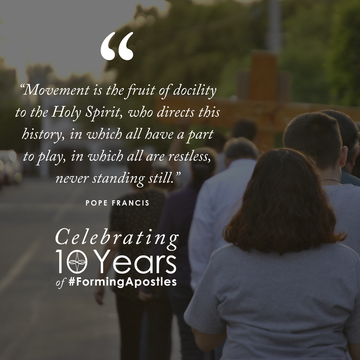 Ten years is a brief amount of time, but it is enough to assess the fruitfulness of a ministry. The Catholic Apostolate Center came out of a desire of the leadership of the Immaculate Conception Province of the Society of the Catholic Apostolate to serve the Church in a way that speaks to its needs in the 21st century through the spiritual vision of St. Vincent Pallotti. The task that Pallotti embarked on in 1835 continues today. The Center is an expression of it. By living collaboration from the beginning and listening and responding to the promptings of the Holy Spirit, the growth, reach, and fruitfulness of the Catholic Apostolate Center in ten years is exceptional. None of it could be possible without the collaboration of the Pallottines, Center staff, collaborators, advisors, various Catholic entities, and with you. In this, we are in thanksgiving. Similar to the Union of Catholic Apostolate (UAC), the Center is as a former President of the UAC says, “of the Church and for the Church.” We do not stand outside making some type of parallel Church or dwelling in ideologies. Instead, the Catholic Apostolate Center for a decade has faithfully assisted the Church in the mission of forming apostles for both the Church and world. Ten years is only the beginning. As Pope Francis stated a few weeks ago to the faithful of the Diocese of Rome, “This is essential: if Christians do not feel a deep inner restlessness, then something is missing. That inner restlessness is born of faith; it impels us to consider what it is best to do, what needs to be preserved or changed. History teaches us that it is not good for the Church to stand still (cf. Evangelii Gaudium, 23). Movement is the fruit of docility to the Holy Spirit, who directs this history, in which all have a part to play, in which all are restless, never standing still.” St. Vincent Pallotti put it this way, sempre più, always more. May the Charity of Christ urge us on!
Tomorrow, we celebrate the birthday of St. Vincent Pallotti, patron of the Catholic Apostolate Center and founder of the Union of Catholic Apostolate. St. Vincent Pallotti was born on April 21, 1795. How appropriate for the saint who lived and worked in the city of Rome to share his birthday with the traditional date for the founding of the city. To help celebrate his birthday, I have put together a list of some of his more interesting achievements and activities during his life. I hope that you too will be inspired by his life. 1) The Baptism of St. Vincent Pallotti St. Vincent Pallotti was baptized on April 22, 1795 in the St. Lawrence Church in Rome. This began his life in the church. 2) St. Vincent Pallotti on Holiday On his arrival in Frascati around 1805, St. Vincent Pallotti exchanged his new shoes for that of a poor boy. Giving away his new clothing to the poor would become a lifelong habit for the saint. 3) St. Vincent Pallotti Makes a Prediction While speaking with the young Giovanni Mastai-Ferretti in 1817, St. Vincent Pallotti predicted that he would one day be elected to the papacy. Mastai-Ferretti was elected Bishop of Rome on June 16, 1846. 4) St. Vincent Pallotti the Professor St. Vincent Pallotti was awarded two doctoral degrees in both theology and philosophy in 1814 and 1819. Teaching was one of the favorite activities of the saint. 5) St. Vincent Pallotti Showing Courage During the cholera epidemic of 1837, St. Vincent Pallotti organized a barefoot procession of religious. This action was penitential and showed that they were not afraid of the disease. 6) Catholic Apostolate Received Church Approval St. Vincent Pallotti received approval for the Catholic Apostolate from the Church in 1835. Pallotti also received support for the Catholic Apostolate from Pope Gregory XVI when others objected to it. 7) St. Vincent Pallotti the Chaplain Beginning in 1838, St. Vincent Pallotti served as a prison chaplain in Rome. He often worked with the condemned, saving many souls. He had a true willingness to serve all, especially the poor and the marginalized. 8) St. Vincent Pallotti the Peacekeeper St. Vincent Pallotti stopped a riot in the Trastevere neighborhood of Rome. He implored the people to stop rioting by showing them an image of Mary, Mother of Divine Love. 9) St. Vincent Pallotti Preaches one Last Time On the last day of the octave of the Epiphany in 1850, St. Vincent Pallotti gave his final sermon. 10) St. Vincent Pallotti Dies In 1850, St. Vincent Pallotti gave his final blessing to his followers. He showed great courage even in the face of death. There are many more stories about St. Vincent Pallotti that you may find interesting. Check out our St. Vincent Pallotti Portal to learn more about our patron and his many works. Amid a time of challenge and difficulty, joy makes appearances in many ways. Recently, several Catholic Apostolate Center staff members and collaborators deepened their baptismal call through Ordination to the Priesthood and Marriage. We also celebrated the Baptism of the child of one of our staff members. The child is named Vincent for St. Vincent Pallotti. In every case, these celebrations were delayed and greatly reduced in size due to the pandemic, but the joy of these days found in the hope of Christ was evident in every one of them. Fr. Alex Boucher, a staff member during the first years of the Center and a current collaborator, was ordained to the priesthood for the Diocese of Portland (Maine). Hally Moreno, Marketing Coordinator, celebrated her marriage to Benny Morales. Center Collaborator, Fr. Joseph Hubbard was ordained to the priesthood for the Archdiocese of Boston. Vincent Scott Pierno, son of Senior Consultant, Chris Pierno, and blog contributor, Krissy Pierno, was baptized. His godfather is Fr. Alex Boucher. At each of these events, Center team members participated in the liturgies as part of the accompaniment that is our hallmark and rooted in the charism of St. Vincent Pallotti. We had accompanied them in their discernment and joined in the celebration. They all live their lives as apostles of Christ and witness to others not only through their particular vocation in life, but also in their support of one another. Such spiritual friendship was part of the life of St. Vincent Pallotti and is an aspect of the Catholic Apostolate Center that is intrinsic to our apostolic work. We support one another in prayer and in our lives in Christ. Each will do this in a unique way, but we are all called to accompany one another in life and in faith. May the Charity of Christ urge us on!
As we continue to navigate uncertain times, Assistant Director of Administration Monica Thom Konschnik shares how we can learn from the life and example of St. Monica during COVID-19.
For more reflections on St. Monica, we invite you to read St. Monica and the Power of Intercessory Prayer and Motherhood and St. Monica. 
Monica Thom Konschnik is the Assistant Director for Administration for the Catholic Apostolate Center.
4/7/2020 Spiritual Friendship: Accompanying College Students During COVID-19 | COVID-19 ResourceRead NowA few of my staff colleagues and all of our interns at the Catholic Apostolate Center are undergraduate students at The Catholic University of America. We, like university students across the country, find ourselves doing remote coursework, dealing with unresolved goodbyes that were meant for a week of break and not months of uncertainty, and the seniors are facing the reality of a delayed, if not completely cancelled commencement. Jonathan Sitko, Assistant Director of Programs for the Catholic Apostolate Center, recently wrote a blog post titled “Accompaniment in Isolation” in which he said, “Each one of us is called to accompany others on the journey of faith. Christ himself modeled this with his disciples and has charged us to do the same. Accompaniment is fundamental to Christianity.” In this time of great uncertainty, I think of my friends, university community members, and all of the college students across the country who are in need of exactly this—of accompaniment. The Art of Accompaniment: Theological, Spiritual, and Practical Elements of Building a More Relational Church reminds us that, “Accompaniment is not for a few ordained or specially commissioned lay ministers; it is a call put forth to all the baptized by the Spirit of God.” I hope that our campus ministry programs are finding ways to accompany students in these times through personal communication when feasible, opportunities for virtual community, and streamed prayer opportunities. These are important and stress the nature of community within our campuses and the desire for students to regain a sense of normalcy in a situation that is so abnormal. The efforts of our campus ministries cannot lead us, the baptized- students, friends, and community- to sit passively. The call that we as students receive in this time of crisis is a call to accompaniment, empowered by the Holy Spirit in Baptism, strengthened at Confirmation. We turn our attention to the dimension of spiritual friendship that the Art of Accompaniment reminds us is, “Like two friends who travel together, this spiritual journey is not undertaken through the sharing of experiences, a character of warmth and tenderness, and involves catching sight of the action of God in the lives of one another.” We are all, in some way, grieving the loss of the life that we once held to be normal; we are all experiencing change, uncertainty, and unrest; and we are called to accompany one another through that. This distinct dimension of accompaniment reminds us that accompaniment is not a hierarchy, that there are not ranks or levels, but that we can accompany in mutuality and reciprocity, as friends, as Jesus calls us to be. St. Vincent Pallotti believed that in our spiritual weakness, God communicates his infinite mercy to us. But in times of great unease, it can be hard to hear him. Accompaniment allows us to dialogue together so to best hear his voice, to pray together for the greatest needs and hopes that we hold, and to witness hope to one another—hope that springs eternal from Christ himself who is alive, who loves us, and who saves us. Here are some suggestions for how college students can accompany one another during COVID-19:
For other reflections to accompany you during this time, please click here.
“Let us allow ourselves to be loved, so that we can give love in return. Let us allow ourselves to stand up and walk towards Easter. Then we will experience the joy of discovering how God raises us up from our ashes.” -Pope Francis (Ash Wednesday Homily, 2020)
Today is the Solemnity of the Annunciation of the Lord. Due to COVID-19, we might believe that we have returned to Ash Wednesday and everything is reduced to ash, even our practice of the faith. Our daily lives have changed or are changing in ways never seen before. But we Christians are people of hope. Hope in God who provides. With the message of the Angel Gabriel that she had conceived the Son of God by the Holy Spirit, the life of the Blessed Virgin Mary changed in a way never known before or since. She trusted, in the love of God that is ever abiding. It gave her the strength to say yes in faith. Love and faith that bore hope, our Hope, Jesus Christ. Our prayer and support for one another, especially in this challenging time, are ways in which we can show the love of Christ toward others, witness our faith, and live hope. In and through our hope in Christ, we at the Catholic Apostolate Center offer our prayers for you. Unprecedented things are happening. While we are being asked to physically stay apart, we can all be connected through technology, but also through the Holy Spirit who connects us all, especially in our prayer. There are many good opportunities to keep the flame of faith alive in our hearts, minds, and actions. The Center has compiled numerous ways to do so on a special resource page where we are also accepting prayer intentions. Let us use this time as wisely as we can, whether together with our family or community or in personal reflection. Christ our hope is with us. We are called to follow the example of Mary and have trusting faith in him. May the Charity of Christ urge us on! To listen to this as a podcast, please click here. Quotes are very popular on social media. People tweet them, dress them up with background color or images, and add them to memes and gifs, usually for comedic effect. A few years ago, after tweeting and also posting on Facebook many quotes of St. Vincent Pallotti, I decided on Ash Wednesday to tweet, “‘Lent is not a diet program.’ -Not St. Vincent Pallotti.” I also posted it on Facebook. To my surprise, it caused a bit of a stir. It did not go viral (nothing I post does), but people I see in real life did notice (even if they did not love or like it on social media). They mentioned it and the meaning of the non-Pallotti quote seemed to resonate.
Now, I could stand to lose some weight, but Lent as a means to this end is not what the season is about. It is a time of penitential preparation that aids us in loving God and loving neighbor more fully. It is not focused on self, even if we “give something up for Lent.” The Lenten season is a time for us to look at where we are and through prayer, fasting, and almsgiving, done in cooperation with God’s grace, move to where God wants us to be. Any self-denial that we do must lead to greater selflessness. As Lent begins, we at the Catholic Apostolate Center hope that our Lenten resources might assist you in this effort. The traditional Catholic means of prayer, fasting, and almsgiving are not ends in themselves, but help us to deepen our encounter with the Risen One, Jesus Christ, in and through the community of faith and to go forth as his apostles/missionary disciples. Please know that we will accompany you in special prayer during this Lenten season. May the Charity of Christ urge us on! For resources to accompany you this Lenten season, please click here. Spiritual accompaniment has been discussed greatly today within the Church and is an important theme of Pope Francis’ papacy. While accompaniment is manifested throughout the Old Testament and in Christ’s ministry, it is important for the Church to consider how best to implement it in modern times. What does accompaniment look like today? How do we best accompany others along their spiritual journey in deepening their relationship with Jesus Christ? The Art of Accompaniment: Theological, Spiritual, and Practical Elements of Building a More Relational Church, a Catholic Apostolate Center resource developed by Colleen Campbell and Thomas Carani, assists in the growth of true accompaniment within the Church today. Below are ten quotes from The Art of Accompaniment that summarize some of the major points of this important resource in order to introduce you to accompaniment and its role for Christians today. 1. “Since the creation of human beings, God has communicated his love through a relationship with humanity…The Old and New Testament reveal the Trinitarian God to be a God who accompanies.” God models accompaniment for humanity in his self-revelation and relationship with his people throughout salvation history. After the Fall, God revealed himself in his various relationships with important figures such as Abraham and Moses in the Old Testament, culminating in the sending of his Son, Jesus Christ, for the salvation of the world. God Himself is the first model of accompaniment. We look to His example in order to understand and implement accompaniment in the Church today. 2. “Spiritual accompaniment is the apostolate of intentional relationship that is oriented toward a definitive direction of growth in holiness and transformation in the Person of Christ.” Colleen and Tom define accompaniment succinctly: spiritual accompaniment does not happen by accident, but is the result of an intentional decision made by two people. The goal of spiritual accompaniment is a deepening in one’s personal relationship with Jesus Christ and in personal holiness that transforms both the mentor and the person being accompanied, as well as those they encounter. 3. “To remain committed to this deliberate choice of discipleship, a mentor is an active participant in their own spiritual formation, deliberately choosing the path of discipleship as their everyday way of life.” A mentor never ceases to pursue holiness, personal development, and spiritual formation. These are life-long endeavors to which the mentor and the person being accompanied dedicate themselves. 4. “Listening is a crucial practice of the mentor because it not only creates space for openness between mentor and the one accompanied, but also makes room for an awareness of the presence and action of God.” An important part of the spiritual life that Pope Francis has emphasized is the art of listening. We must be silent in order to hear the voice of God and the promptings of the Holy Spirit. The ability to listen well is also incredibly important to the art of accompaniment. When a mentor is adept in the art of listening, he or she affirms the dignity of the person being accompanied and humbly leaves room for the voice of God to be heard and acknowledged. 5. “Discernment is a supernatural gift of the Holy Spirit and useful in coming to identify the movements and actions of God in daily life.” Both the mentor and person being accompanied must grow in their ability to discern the work of God and the presence of the Holy Spirit. While there are many resources within the Church that help form a person in their understanding of discernment, it is ultimately a gift of the Holy Spirit. By praying for clarity, understanding, and wisdom, and by approaching the accompanying relationship in a posture of humility, both the mentor and person being accompanied create an environment in which the actions of God are received and acted upon. Ongoing discernment is crucial to spiritual accompaniment. 6. "Mentors are formed by the community as a result of encountering diverse groups of people, listening to different perspectives, seeking guidance from others, and worshipping and seeking Christ amongst the family of the children of God." The spiritual life does not and cannot exist in a vacuum; the same is true with accompaniment. Both the mentor and person being accompanied are formed by their parishes and communities. The beauty of our relational existence is that our communities of faith are comprised of all sorts of people. This diversity within our parishes enriches each member of the Body of Christ and deepens compassion, understanding, and a spirit of inclusion that helps the mentor better accompany another person. 7. "As they share the journey of the Christian life with the one accompanied, the mentor evangelizes the accompanied by fostering an encounter with Christ in their daily life, drawing connections between the Gospel message and their everyday experiences, and encouraging them toward ongoing conversion to Christ through the relationship of accompaniment." An important aspect of accompaniment is that it is a mutual journey towards Christ. Accompaniment does not happen only in Church settings and does not only address topics of faith—it encompasses an entire life. Our faith life also does not occur in a vacuum, but should impact and inform every aspect of our existence. As a result, accompaniment helps both the mentor and the one being accompanied to draw connections between the Gospel and everyday life. 8. "Those accompanied are open to formation and display their willingness to be formed by authentically seeking holiness, collaborating with their mentor, remaining humble in the midst of difficulty, and giving thought and prayer to challenges or new ideas…they must seek faith formation through study, catechetical ministry through parishes or Catholic institutions, and their own personal learning." Humility is a crucial component of an accompanying relationship—especially for the one being accompanied. The person being accompanied acknowledges the need to walk alongside a mentor and to be formed by them in order to grow in holiness and a relationship with Christ. Therefore, the mentor is an authority figure that respectfully and lovingly informs and collaborates with the one being accompanied, as well as with the Holy Spirit. Furthermore, the one accompanied also seeks personal formation in other trusted places. 9. "In the relationship of accompaniment, the marginalized are provided a space in which they can come to deeply know the love of Jesus Christ through friendship, guidance, and authenticity with a mentor." No one is exempt from an accompanying relationship—it is an important part of the spiritual life that all are invited to. A relationship of accompaniment results in the greatest treasure on earth: friendship with and love of Jesus Christ. A mentor is more than an authority figure. He or she is a friend, helper, and guide who affirms a person’s dignity and walks alongside another to build up the Body of Christ. 10. "The inspiration and model for the apostolate of accompaniment is Mary…In Mary, the Church has a model and intercessor for the apostolate of accompaniment." We cannot have a vibrant and lasting life of faith and thriving relationship with Christ without looking to and having a relationship with His Mother, Mary. The Blessed Virgin Mary always leads us closer to her Son. By looking to her and seeking her guidance and intercession, we can be sure that our efforts to accompany and be accompanied will bear much fruit. To learn more about The Art of Accompaniment and order your copy today, please click here. 10/24/2019 The Apostolate of Accompaniment: Creating an Environment of Accompaniment in Our ParishesRead NowWhen people speak about the work of evangelization or accompaniment, they often speak about going out to the margins, “to the highways and the hedgerows” (Luke 14:23,) to bring the “nones” and the unbaptized into the Church. This is, of course, an essential part of Jesus’ final commission to his apostles to baptize and make disciples of all nations (Matthew 28:16-20). But I have to wonder: what’s the state of spiritual health in our own parishes? Are the lay faithful aware that their sacramental experience is an encounter with Christ, and do they care about their brothers and sisters with whom they share Communion? Are the people in our pews accompanied by anyone in their journey of faith or are they trying to live their faith on their own? There are many definitions for spiritual accompaniment, but in the book I co-authored with Colleen Campbell as a resource for the Catholic Apostolate Center, we define spiritual accompaniment as “the apostolate of intentional relationship that is oriented toward a definitive direction of growth in holiness and transformation in the Person of Christ.” In general, accompaniment is “a broad term that refers to a relationship between two or more people who share mutuality and reciprocity in the spiritual life” (The Art of Accompaniment). I believe this “apostolate” of accompaniment is essential to a parish’s spiritual health for three main reasons: First, creating a culture of accompaniment in the parish enables the lay faithful to be who they are called to be by their baptism. In the Rite of Baptism, we receive the Holy Spirit and we are made members of Christ’s Body. As members of the same Body, we have a responsibility to bring the light and love of Christ to one another. As Paul writes in First Corinthians, the various parts of the body must have concern for one another because we need each other (1 Corinthians 12:21-26). When members of the lay faithful take an interest in one another’s faith journeys, encouraging one another on that journey, they are living their Christian vocation as the Church intends. When members of the lay faithful are not concerned for members of their parish community, they become spiritually stunted and begin to believe that faith does not require community in one Body. Second, accompaniment helps a parish to become the best ordinary place of encounter with Christ. The parish is the most likely place where an individual begins his faith journey. Churches that sit on familiar street corners appear as safe havens for those who seek the Lord or some other help. The parish must embrace a culture of accompaniment so that when individuals approach it seeking communion, they are met with a warm and welcoming response instead of sacramental hoops or parish boundary restrictions. Accompaniment challenges parish staff and parishioners to “[respect] the dignity of the human person, and [seek] to increase their freedom to respond to the all-encompassing love of God within their life” (The Art of Accompaniment). Finally, it’s important that we implement a culture of accompaniment in our parishes because one of the goals of accompaniment is liturgical worship, and this can only take place in the parish. Sacramental theology reminds us that the sacraments are how Jesus accompanies and remains with his Church in a physical way (CCC 1088). Accompaniment’s goal is “transformation in the Person of Christ,” and if the lay faithful are serious about accompanying one another, they will encourage one another to seek out liturgical life at the parish, because the sacraments sanctify us, build up the body of Christ, and give worship to the One who Accompanies. For more resources on Accompaniment, please click here. To purchase The Art of Accompaniment, please click here. Today, the Catholic Apostolate Center is celebrating its 8th anniversary of reviving faith, rekindling charity, and forming apostles. We have both had the honor of being a part of this amazing and spirit-filled endeavor since its earliest days and remember fondly what it took to get started. When Fr. Frank Donio, S.A.C. gathered a small group of committed collaborators together to think about what the Pallottines of the Immaculate Conception Province could do to answer the Holy Father's call to a new evangelization, it was clear that we needed to work with active Catholics. We felt called to meet them where they were on their individual faith journeys. This meant that we needed to engage all that the internet had to offer, to use emerging social media, and to reach people where they were conducting their daily lives. In the last eight years, the work done by the Catholic Apostolate Center has impacted the lives of thousands of people through conferences and events; hosting hundreds of webinars and Facebook Live events; providing learning and educational opportunities through seminars and speaking engagement; making spiritual posts on Facebook, Twitter, Instagram; developing programs with our affiliated partners; and providing space for collaboration among Church entities. All the while, our mission is not necessarily to reach the masses, but to reach the one. We work collaboratively to develop our resources – working with the individual gifts and talents that each member of our team and our collaborators possess, always leaving room for the Holy Spirit. Each of us has grown professionally and personally in an environment that challenges, affirms, and provides us opportunities to share our own gifts through presenting, writing, video production, marketing, management, and administration. We look forward—through the Holy Spirit and God’s Divine Providence—to continuing our mission for another eight years and beyond.
“The religious commitment to procure the propagation of the Holy Faith throughout the world cannot be separated from that to procure to revive the Faith, and to rekindle Charity among Catholics, and this not only because such is the order of Christian Charity, but also because there is a need to rekindle the Holy Faith and to rekindle Charity among Catholics.” – St. Vincent Pallotti (OOCC III, 16)
As we celebrate today the 8th anniversary of the Catholic Apostolate Center during this Extraordinary Missionary Month declared by Pope Francis, these words of St. Vincent Pallotti offer us a summary of the interconnection of the Church’s missionary efforts, encompassing what we now call Evangelization and New Evangelization. Pallotti understood this in the first half of the nineteenth century. He knew then what the Church is calling for now, co-responsibility of all the baptized for the mission of Christ and his Church. We are all sent forth as apostles, as missionary disciples! The Center accomplishes its mission of reviving faith, rekindling charity, and forming apostles through intense collaboration, or “holy cooperation” as Pallotti would call it, with God and others. The only way the Center has come to this day is through the great collaboration among staff, collaborators, advisors, Pallottines, consultants, affiliates, and many others who are co-responsible for its mission. The Holy Spirit who came upon the Blessed Virgin Mary and the Apostles and disciples in the Cenacle in Jerusalem has sent us forth and guided us in ways that we could never have imagined back in 2011 when the Center began. We do this always in service of Christ and his Church just as Pallotti did. Thank you for your support of our efforts and know that our prayers are with you! Mary, Queen of Apostles, pray for us! St. Vincent Pallotti, pray for us! May the Charity of Christ urge us on! Silence is an old friend—one I don’t often get to spend quality time with. But when I do, we give each other a knowing glance, a subtle nod, a familiar smile. It doesn’t matter how many days, weeks, or months have passed—we can pick up right where we left off without any sheepishness. Today, I come in through the front door, take off my coat, and settle into the warm embrace of silence, letting it melt any frost that has accumulated in my heart. Silence knows I’m not able to visit as often these days, but she doesn’t hold a grudge or look at me disapprovingly. She gives me a tender look and welcomes me with open arms – relishing every moment I give her to rejuvenate my soul. And she can work very quickly—a few minutes, hours, (in this case) a day. Any time spent in her company is restorative. She is generous with herself. I was reminded of that this past weekend when I attended a Silent Day of Reflection at the Catholic Apostolate Center’s headquarters at Green Hill. This little oasis sits on 14 acres just a few miles outside of the hustle and bustle of Washington, D.C. and offers ample spaces, both indoor and outdoor, for prayer and reflection. The theme of the day was The Beatitudes. The schedule was sprinkled with powerful moments of prayer: Mass, Adoration, Confession, a reflection on the day’s theme, and Lectio Divina. There was also time for quiet personal prayer. Participants had the opportunity to walk the grounds, enjoy the gardens, pray in the chapel, journal, color, or simply rest. The home of the Pallottine Fathers and Brothers of the Immaculate Conception Province is a treasure, offering a welcome place of retreat, gathering, and prayer. The Pallottines, as well as the staff of the Catholic Apostolate Center, are pleased to invite and welcome those seeking formation, personal enrichment, rejuvenation, or spiritual refreshment to Green Hill and look forward to continuing to provide opportunities to do so. As a wife, mother, blog editor, homeowner, and budding gardener, I find my days often blur in the hasty movement of time. I frequently long for silence and reflection, but do not have the time or space for it. The Silent Day of Reflection organized by the Catholic Apostolate Center was an answer to a prayer and a gift for my spiritual life. After spending the day at Green Hill, I got up from silence’s hearth reluctantly, feeling gently lulled, peaceful, held. It was a refreshing day of encounter with God amidst the beautiful backdrop of nature, and I didn’t want it to end. Not all have the wisdom to seek silence, to receive the gifts she awaits to impart. We often take her for granted, drown her out, or try to replace her—convincing ourselves she is old-fashioned, irrelevant, unnecessary, extinct. She awaits all the same, ever ancient, ever new—the immortal gift of her Creator, the vehicle of His encounter, the respite of all souls. Will you seek her? To learn more about Green Hill and upcoming events, please click here. |
Details
Archives
July 2024
Categories
All
|
About |
Media |
© COPYRIGHT 2024 | ALL RIGHTS RESERVED

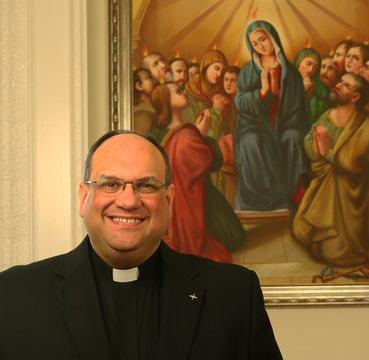
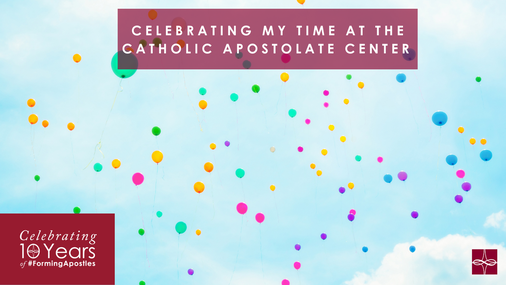

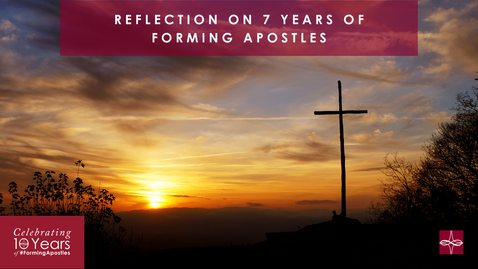

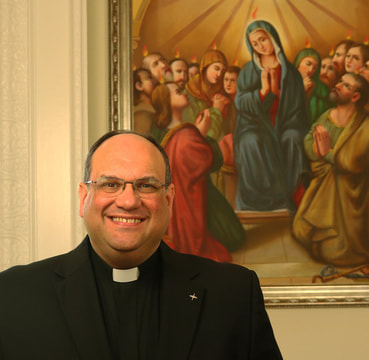
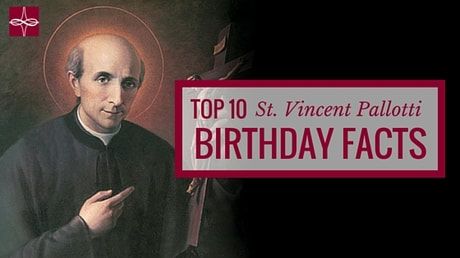
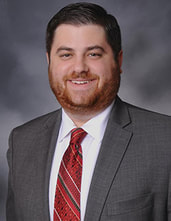

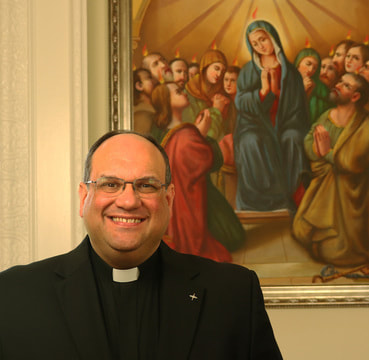

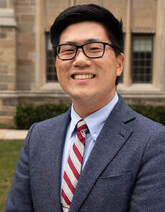
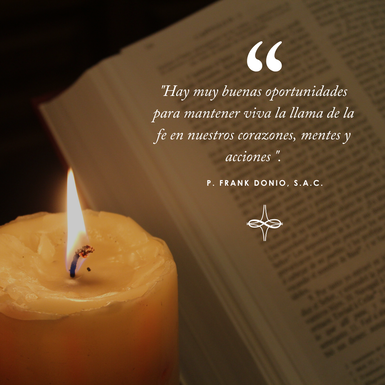
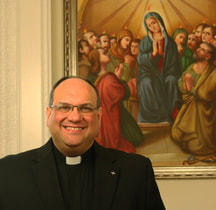





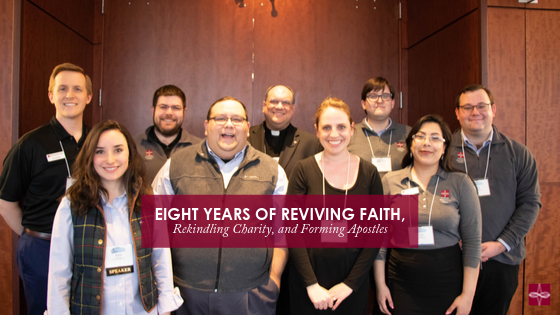
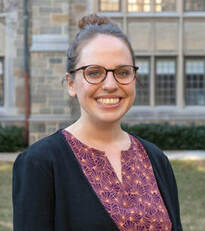

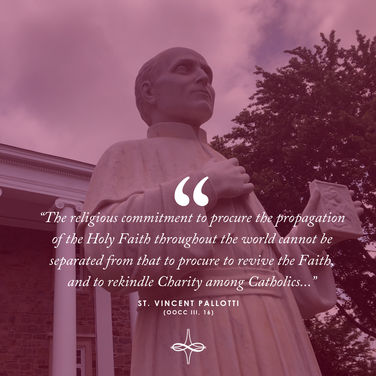
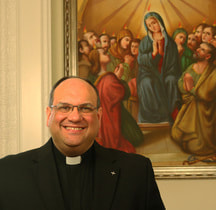


 RSS Feed
RSS Feed